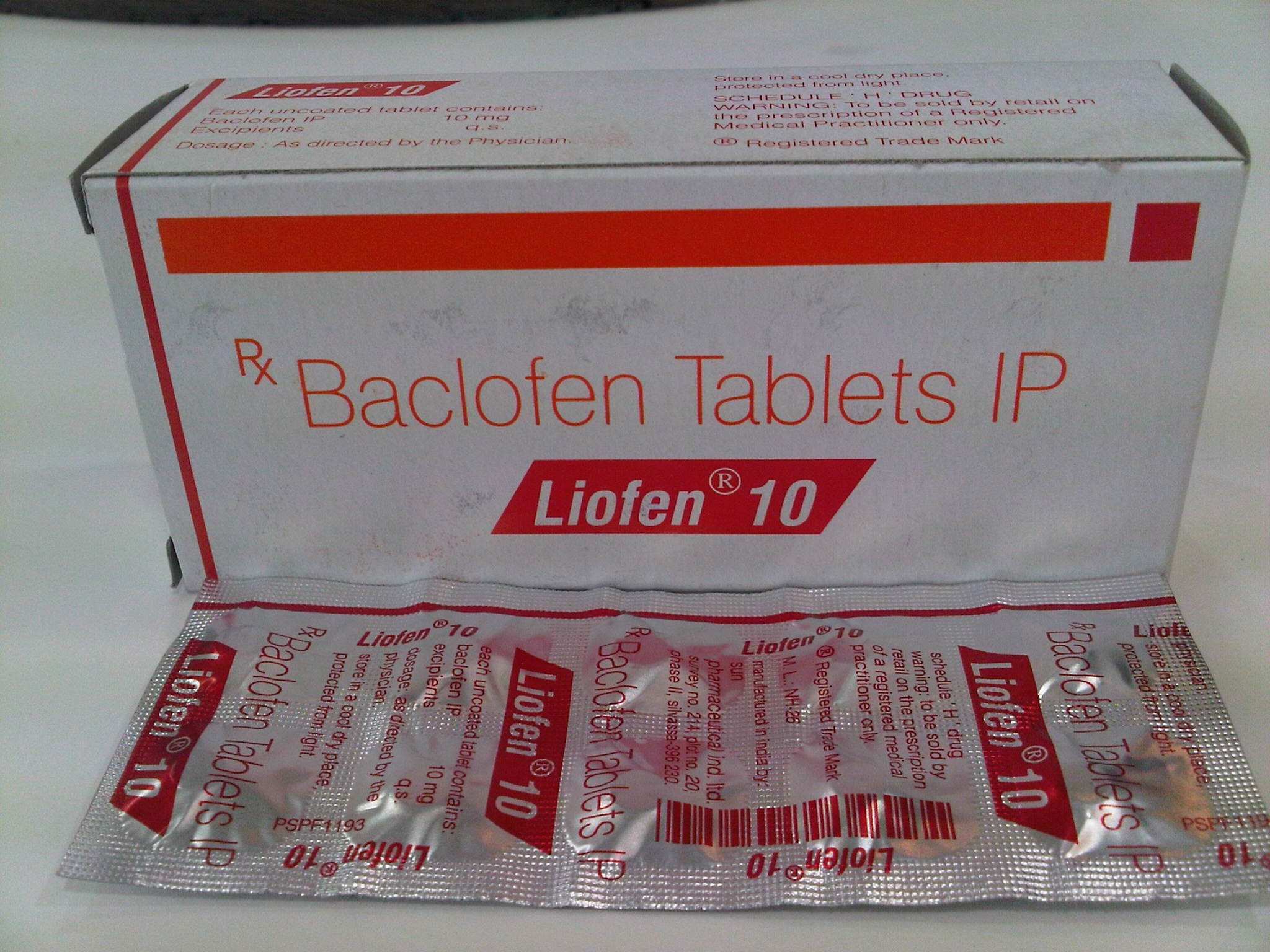LIORESAL (BACLOFEN)
Lioresal Information
Lioresal
is a popular antispastic agent and a muscle relaxer that is also generically
known under the name of Baclofen. This medicine is widely used in the treatment
of several unpleasant muscle symptoms (such as pain, spasm and stiffness), that
might be triggered by several muscle disorders such as multiple sclerosis.
Lioresal Indications
Lioresal
is a medicine that is usually prescribed to patients who are experiencing some
of multiple sclerosis’ unpleasant symptoms (muscle pain, stiffness and
spasm). However, this medicine could also be prescribed to treat or to prevent
some other medical conditions (disorders) that have not been mentioned in this
guide.
Lioresal Warnings
A
treatment with Lioresal is known to sometimes cause some side effects that
could impair your reactions and your thinking. Therefore, during your intake of
this drug, you should be careful while driving or performing any other
hazardous activities (that are known to require physical or mental alertness).
You should avoid drinking alcoholic beverages during your treatment with
Baclofen, because alcohol may increase some of this medicine’s side effects.
You must not take this medicine when you need to assure safe movement or
balance and a proper muscle tone.
Patients
who have followed a treatment with this drug have experienced withdrawal
symptoms for example hallucinations or seizures, especially when they have
stopped a prolonged treatment with Lioresal. You must not stop taking this
medicine without your physician’s approval. It is recommended that your dose of
Baclofen should be gradually diminished until you can completely stop your
intake of this medicine.
You
must not start following a treatment with this drug if you are suffering from a
known allergic reaction to this medicine or to any of its main ingredients.
Before you start taking Lioresal, you should alert your personal physician if
you have any allergic reactions to foods, dyes, preservatives, other drugs or
any other type of substances or if you have:
- kidney disease;
- seizure disorder (such as epilepsy);
- a history of blood clots or stroke.
If
you are suffering from any of these medical conditions, you might not be
allowed to take Lioresal, or you might have to take in a lower dose of this
medicine. Lioresal is a category C FDA pregnancy drug. Therefore, a treatment
with this medicine during pregnancy could harm a growing fetus. If you are
pregnant, or if you plan to be so soon, you should ask for your physician’s
approval before you start taking this drug. It has not been clearly determined
whether this medicine’s main ingredients are able to pass into breastmilk.
However, you should ask for your physician’s consent before you take this drug
if you are breastfeeding an infant. Elderly patients are known to be more prone
to experiencing this medicine’s side effects. Avoid giving this medicine to a
child under the age of 12.
Lioresal Intake
Guidelines
Follow
each and every one of the advices that your doctor has given you regarding your
treatment with Lioresal (do not disobey any of them). If you have any further
questions you should ask your doctor, a pharmacist or a nurse. You should read
the instructions that are written on the drug’s label for further information
regarding Baclofen. You may take this medicine either on a full or on an empty
stomach, because this drug is not supposed to cause stomach upset. If your
symptoms have not improved after 2 weeks of taking this drug, you should alert
your personal physician as soon as you can.
Some patients who have taken Lioresal have experienced some withdrawal symptoms for example hallucinations or seizures, especially when they have stopped a prolonged treatment with this medicine. You should not stop taking this drug without your physician’s consent. In some cases, the patients are prescribed gradually diminished doses of this medicine before they completely stop taking it. Store this drug away from heat and moisture, at the average room temperature.
Some patients who have taken Lioresal have experienced some withdrawal symptoms for example hallucinations or seizures, especially when they have stopped a prolonged treatment with this medicine. You should not stop taking this drug without your physician’s consent. In some cases, the patients are prescribed gradually diminished doses of this medicine before they completely stop taking it. Store this drug away from heat and moisture, at the average room temperature.
Lioresal
Dosage
Ask
your doctor to calculate the dose of Lioresal that should suit you best. The
correct dosage varies from one patient to another, as it depends on a couple of
factors (among them: age, body weight, the disorder’s severity, etc). Do not
change the dose that you have been prescribed without first consulting it with
your personal physician.
Lioresal Side Effects
Alert
your physician if you are experiencing allergic reactions: hives; breathing difficulties;
swelling of your face, tongue, lips, or throat. Stop your treatment with
Lioresal if you have these severe side effects:
- confusion, hallucinations;
- seizure (convulsions);
- uneven heartbeat.
Alert
your physician if you have these more common and less dangerous side effects:
- drowsiness, weakness, dizziness, tired feeling;
- sleep problems (Insomnia);
- headache;
- nausea, constipation.
Other
side effects may also occur when you take Lioresal. Alert your physician
immediately if you experience anything abnormal while taking this drug.
Lioresal
Drug Reactions
If
you have to follow a treatment with another drug (apart from Lioresal) it is
recommended that you should ask for your doctor’s consent to do so.
Buy
Lioresal
Buy
Lioresal through our Online Pharmacy or at any Canada Pharmacy where
prescriptions of this drug are honored.




ConversionConversion EmoticonEmoticon